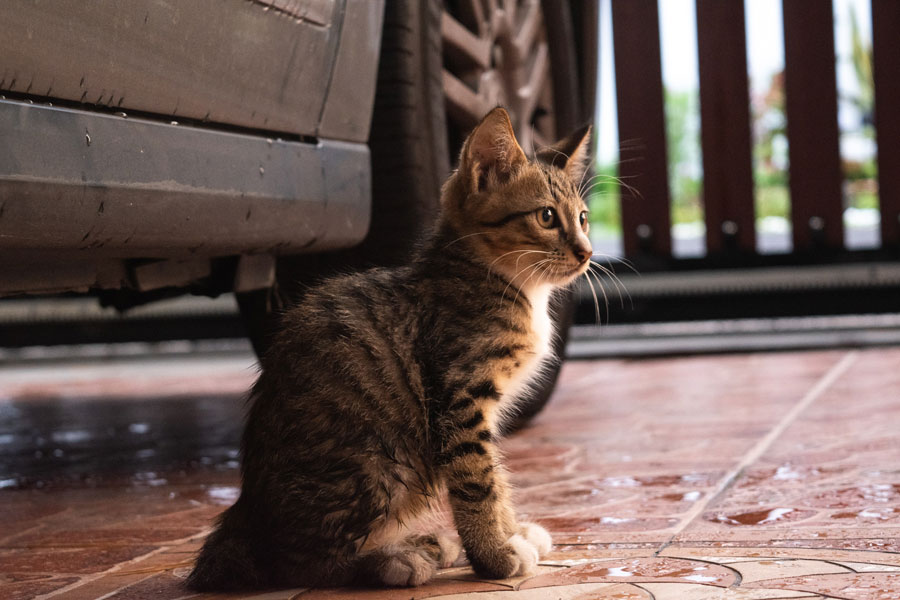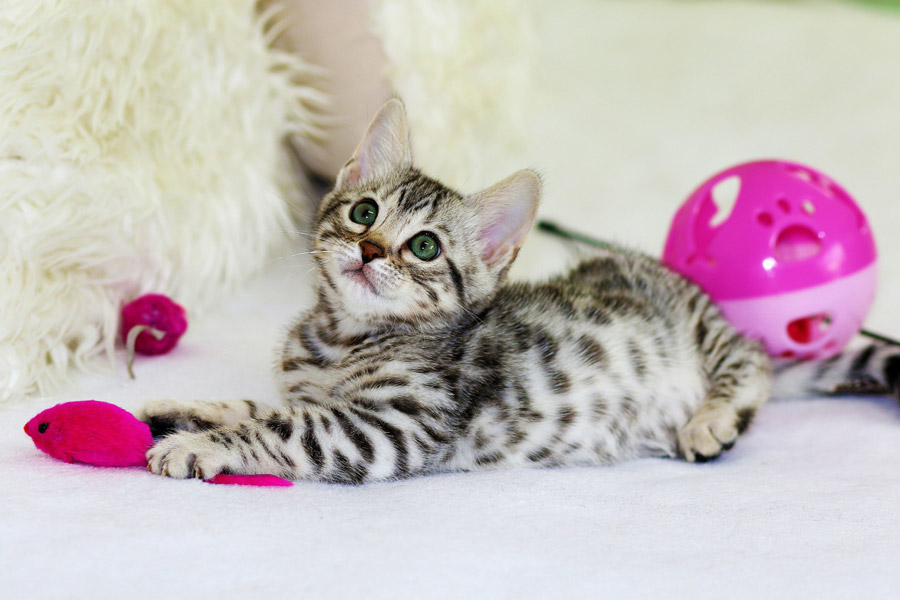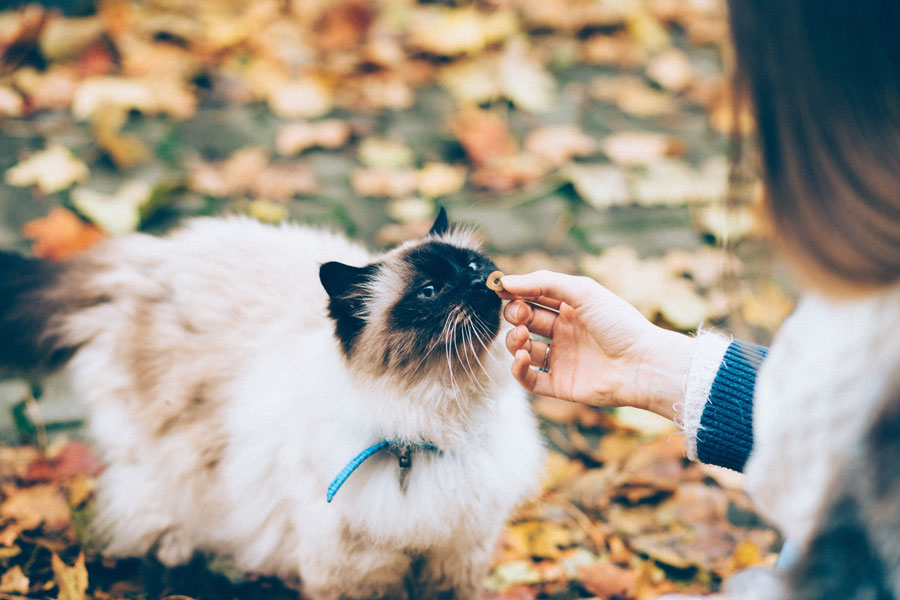As we head into winter it’s important to keep our feline friends safe. Indeed, when it comes to cat safety, there are many things you and your client can do to keep kitty happy all winter long.
In Australia, we tend to have fairly mild winters. However, we still get our fair share of stormy weather. Plus, there are several other winter hazards to make your clients aware of.

Cat safety: 6 potential winter hazards
Sure, freezing temperatures might not be too big of an issue for Aussie cats (although there are some places where it gets pretty cold). Nonetheless, there are several winter dangers you can warn pet owners about.
1. Poisons
Yes, we want to avoid poisons all year round, but in winter anti-freeze is probably the biggest cat danger. Pet owners who live in the colder parts of the country may use anti-freeze in their car during winter.
Remind them of the importance of storing the anti-freeze out of reach of their feline friend and cleaning up any spills in the garage or driveway.
2. Dehydration
Whether your clients have indoor or outdoor cats, our purring pals tend to spend more time indoors during winter. Woodfire and general heating can lead to dehydration. Ensuring our feline chums have access to clean water at all times goes hand in hand with optimal cat safety.
3. Burns
Wood stoves, open fireplaces and heaters might make us humans feel all warm and cozy but they can be a serious danger to cat safety.
Advise pet owners to use a safety screen or barrier to keep their cat safe from flames and embers.
4. Cars
Cat’s love to feel warm and dry, which is why curling up under the hood of a car seems so appealing to them. However, this can lead to serious injury or even death.
Remind your clients to check under and around their car before getting in or starting the engine.
5. The dark
It gets dark early in winter and, sadly, it’s during the hours of darkness that most cat-and-traffic-related injuries happen. Aside from suggesting a glow in the dark cat collar, encourage owners to call their cat home before it gets dark and peak traffic hour begins.
6. Obesity
With more time spent indoors, it’s not uncommon for our purr pals to gain a few extra kilos over winter (just like us humans!). As a pet professional, you can remind pet owners that pet obesity is a growing problem in Australia.
Advise clients to monitor their cat’s weight and food intake. It may be that they need to reduce the amount of food they feed their kitty during winter.

Promoting cat safety
Howling winds, storms and cool temperatures are no fun for anyone—including cats. Encourage your clients to consider their cat’s safety and comfort before bad weather strikes. Here are a few things you can advise cat owners on.
Keeping Kitty warm
Cats should be inside over night in all seasons (to protect the native wildlife), but this is especially so in winter. Temperatures can really drop, causing hypothermia in cats.
Just because cats have fur, this doesn’t mean they don’t feel the cold. Particularly in the case of clients who have short-haired or hairless cats, you might suggest a kitty sweater or an extra blanket in their bed.
Provide a comfortable place to curl up
Make sure the cat’s bed is in a warm and safe area of the house—not too close to heat sources. Cat’s who love to roam outdoors might benefit from an outdoor shelter. At least if the weather turns bad, they have a warm, dry place to rest up.
Indoor activities
If your client’s cat is spending much of its time indoors during the chilly months, encourage them to keep it active.
Playing games and keeping Kitty stimulated it’s good for the cat’s fitness levels and mental health. Plus, it’ll help prevent the cat from becoming overweight.
Ensuring cat safety in winter is simply about thinking ahead and planning well. With a few small changes and a little forethought, Kitty can welcome in spring feeling happy and healthy.
Related posts:
- How to tell if a dog is in pain
- What to do if your client’s dog is anxious
- How to encourage responsible pet parenting
Image source: Unsplash
Latest posts by Liz Walden (see all)
- Pet health: Medicinal cannabis for pets - December 27, 2021
- What pet business insurance do I need? - November 17, 2021
- Pet sitters: how to take time off - November 15, 2021










Leave A Comment